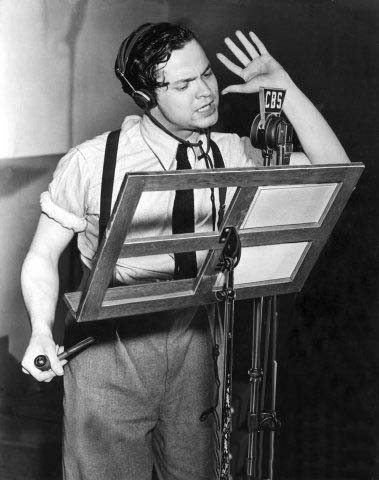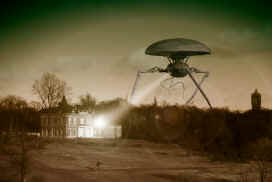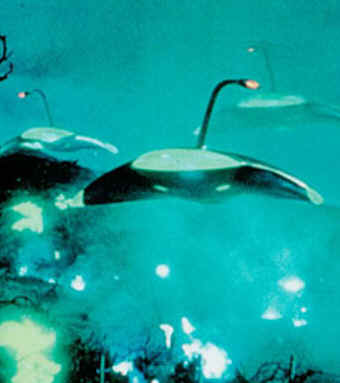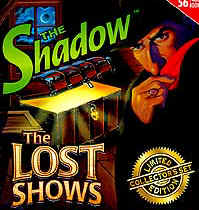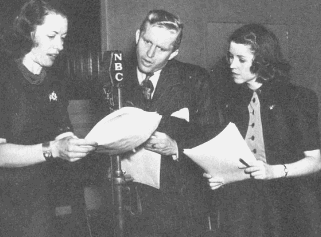 |
COMEDY ON OLD
TIME RADIO Right mouse click, select 'open in a new window, so you can look at the pictures and questions while you listen to the programs. 3. Listen to some of this comedy program. (If you download these radio plays before your lesson, they'll then be on your computer and will start straight away for your class...) a) What is the name of the program? b) Discuss what audience you think this program was written for, children or adults? c) What is the comedy story about? (A squash is a type of vegetable!) d) Describe the sound effects used in the program. |
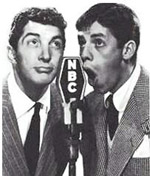
|
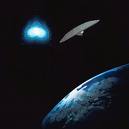
|
 4. Listen to some of this famous fictional broadcast, The War of the Worlds, presented by Orsen Welles. a) What dramatic events does this program describe? b) What effects did Orsen Welles use to make this broadcast sound very realistic to the audience listening? c) Find out from the Internet when this broadcast was made, and why it upset and caused panic among many groups of people listening to the radio program. |
|
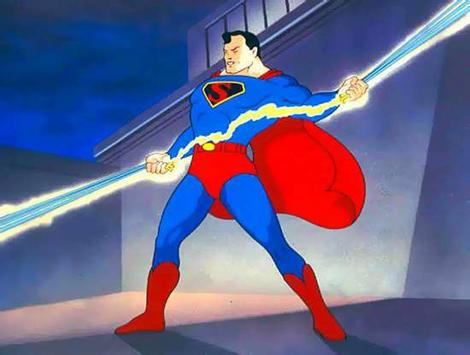  |
POPULAR RADIO PROGRAMS 5. Listen to part of each of the following radio programs. Program 1 Program 2 Program 3 Program 4 Program 5 Program 6 a) Select three of the programs, and for each of these, write the following in your book or folder, (if it is provided in the program) I. The name of the program, and the main characters. II. Which radio station broadcast the program, III The title of the story, and IV. Use the Internet to find out when it was made. b) Discus for which audience you think the programs were produced. c) Describe which type of music was used and how it was used in the programs. d) Write the opening few minutes of your own radio drama. Write the following: I. The title, II. A three or four line summary of what the beginning of your story is about. III. A description of the opening scene - the setting where the action is taking place. IV. The name and a description of your characters - sex, age, accent etc. V. The opening 8-10 lines of dialogue. VI. A description of the sounds and background sounds and how they would be produced. VII. The music you would use at the beginning of your radio drama. This is an example of a Radio Script - 'Captain Midnight' new http://www.dumb.com/oldtimeradio/ This site has a great collection of the old radio plays. |
|
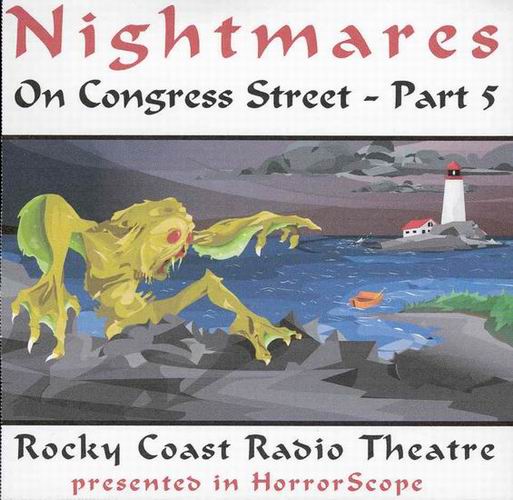 |
 "They came into our homes daily; our living rooms, our bedsides over the radio. These were people who told us about sorrow, joy, hope, tragedy. They consoled us, instructed us and we listened. These broadcast news pioneers were bright and articulate. They were the radio news commentators." (From:http://www.otr.com/news.shtml) 6. Listen to this
famous
live broadcast of a tragic disaster, the crashing and burning
of the Zeppelin aircraft, the Hindenburg in 1937. |
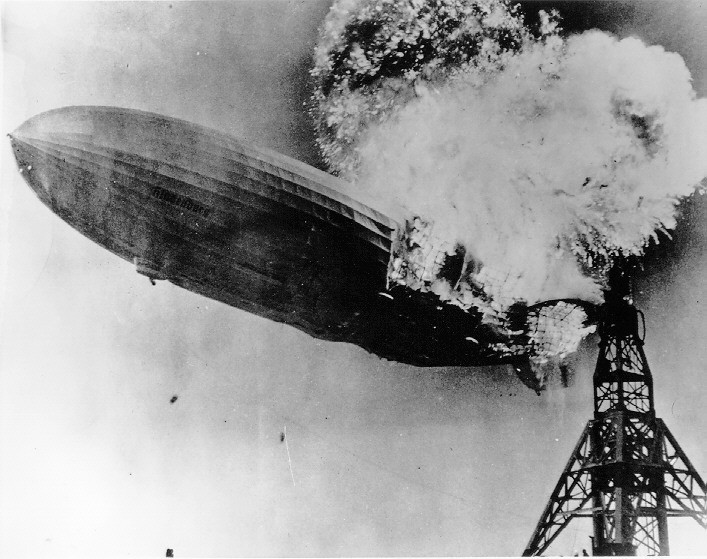 https://www.youtube.com/watch?v=CgWHbpMVQ1U&feature=related |


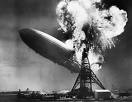

 |
|
|
SOUND EFFECTS |
||
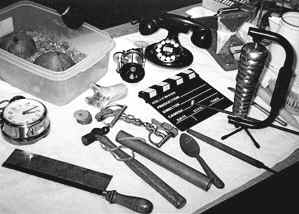
|
 An
extract from the magazine Popular Science, July 1940 : An
extract from the magazine Popular Science, July 1940 :"An innovation in sounds effects provides new realism for radio drama. Heretofore [before now], experts using standard artifices of the stage have had no difficulty in simulating such things as a knock on the door, a ringing telephone bell, or a revolver shot. But now, for the first time, they are going farther and creating appropriate 'sound backgrounds' for each scene. A man's voice takes on a different quality over a bridge table, and across a room. A woman's voice indoors and outdoors doesn't sound the same. Close your eyes in a forest and you still hear familiar forest sounds. The same 'background' would startle you in a city apartment where you might expect to hear, instead, the rumble of a surface car or subway, the sound of a radio next door, or the hum of a refrigerator." 
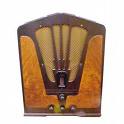
|
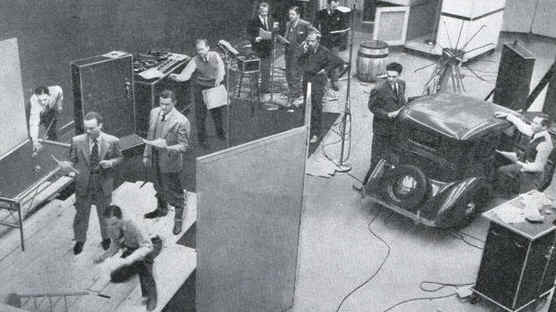
"Panels for walls, a board floor, and a pool table
all add up to give realistic sound to a pool-room scene." |
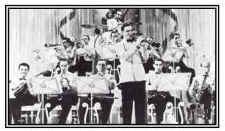  8. Listen to some of the following music program from Old Time Radio - Benny Goodman a) Benny Goodman was known as the 'King of______'? b) Where was the program broadcast from? |
||
